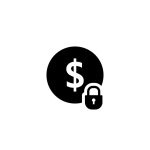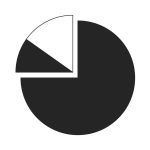HHS Publishes Proposed Rule Defining Information Blocking Penalties for Medical Providers
|
Getting your Trinity Audio player ready...
|
The Department of Health and Human Services (“HHS”), the Office of the National Coordinator for Health Information Technology (“ONC”) and the Centers for Medicare & Medicaid Services (“CMS”) have just published a proposed rule defining the consequences for medical providers who fail to comply with the new information blocking regulations.
HHS previously established information blocking penalties for IT providers, health information exchanges, and networks of up to $1 million per violation. A full discussion of the previously proposed information blocking regulations was previously published on the Silicon Valley Digital Health Law Blog at this attached link
The newly announced proposal linked here will establish penalties in the form of financial disincentives for the medical providers who violate the information blocking regulations and are also Medicare-enrolled providers or suppliers. (For the avoidance of doubt, the proposed rules do not apply to medical providers who fail to comply with the regulations but are not Medicare-enrolled providers or suppliers.) The proposed financial disincentives are as follows:
- “Eligible Hospital(s)” or “critical access hospital(s)” would not be deemed to be a “meaningful electronic health record (“EHR”)” user, meaning that an “eligible hospital” would not be able to earn the three quarters of the annual market basket increase associated with qualifying as a meaningful EHR user and a “critical access hospital” would have its payment reduced to 100 percent of reasonable costs from the 101 percent of reasonable costs it might otherwise have earned in an applicable year.
- A health care provider that is an a “MIPS eligible clinician” would not be a “meaningful EHR user” in an applicable information blocking performance period and would also be required to report on the Promoting Interoperability performance category of MIP, as not earning a score.
- A health provider that is an accountable care organization (“ACO”), ACO participant, or ACO provider/ supplier will be barred from participating in the Shared Savings Program for at least a year.
What are the potential financial implications for these disincentives?
According to reporting by Healthcare IT News, the consequences to an “eligible hospital” deemed to be non-compliant “could result in a median disincentive amount of $394,353, ” whereas the consequences to a group of “MIPS eligible clinician(s)” deemed to be non-compliant could result in a loss ranging $1,372 to $165,326 for group sizes ranging from two to 241 clinicians.
HHS, ONC and CMS are currently seeking comments on the proposed rule. Comments should be submitted on or before January 2, 2024 at 5 p.m. ET. The submission instructions are published at this attached link.
 Fixed and Flat Fees
Fixed and Flat Fees Fractional Fees
Fractional Fees Subscription Fees
Subscription Fees Hourly Fees
Hourly Fees